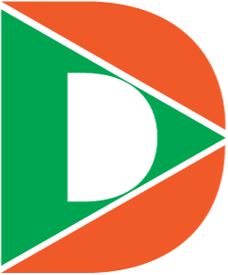Pros and Cons of Reverse Mortgages: What You Need to Know
There is no denying the fact that each one of us has to retire sooner or later. In this article, we will talk about the pros and cons of reverse mortgages perfectly. However, as you approach retirement, making sure that you have a secure and comfortable financial future becomes very important. So, what should I do in order to achieve that financial security?
Well, in that scenario, one option that comes to mind is the reverse mortgage in Orange County. It often emerges as a viable and one of the best options for seniors who are seeking to maximize the value of their homes.
But what pros and, obviously, what cons does this have? Well, if you want to get an idea of the pros and cons of reverse mortgages, make sure to read this article till the end. In this blog post, we are going to discuss the pros and cons of reverse mortgages, underscoring crucial aspects that every homeowner should understand. So let’s not wait any longer and just jump right into the real things!
Understanding the Pros:
1. Supplemental Income for Retirement:
It is a fact that reverse mortgages provide a steady stream of supplemental income, offering a financial cushion for retirees. This income becomes very important for the purpose of maintaining your lifestyle. Not only that, but it also becomes crucial in order to cover unexpected expenses.
2. No Monthly Payments:
One standout feature is the absence of monthly mortgage payments. Instead of paying the lender, you receive payments. This can alleviate financial stress and allow you to enjoy the benefits of homeownership without ongoing financial commitments.
3. Retaining Ownership and Residence:
Everyone out there wants to retain ownership and residence. Seniors can tap into their home equity while retaining ownership and the right to reside in their homes. What it does is ensure a sense of continuity and familiarity, a vital aspect of emotional well-being.
4. Flexibility in Payout Options:
Reverse mortgages offer flexibility in how you receive funds. Whether you prefer a lump sum, regular monthly payments, or a line of credit, these options cater to diverse financial needs and preferences.
5. Federal Insurance Protection:
Certain reverse mortgages, such as the Home Equity Conversion Mortgage (HECM), are federally insured. This government backing adds an extra layer of protection, ensuring that you receive the agreed-upon benefits.
Unpacking the Cons:
1. Accruing Interest Over Time:
One of the most notable drawbacks of reverse mortgages is the accrual of interest over the life of the loan. What it means is that the total repayment amount can exceed the initially borrowed sum, impacting the overall financial picture.
2. Impact on Inheritance:
Reverse mortgages can influence the inheritance left for heirs. The loan amount, combined with accrued interest, is deducted from the home’s value, potentially reducing the legacy passed on to family members.
3. Complexity and Associated Costs:
Navigating the landscape of reverse mortgages can be complex, and it’s essential to understand the associated costs. Closing costs and servicing fees can add up, requiring careful consideration during the decision-making process.
4. Home Value Fluctuations:
Real estate markets are dynamic, and fluctuations can impact the ultimate value of your home. These changes may affect the equity available for heirs. As a result, this makes it more important to have an ongoing assessment.
5. Potential for Exhausting Equity:
You may have heard that if you fail to plan, you plan to fail. Well, this is also the case when we talk about reverse mortgages. There is no denying the fact that, without careful planning, a reverse mortgage has the potential to exhaust the equity in your home. Proper financial management is crucial to ensuring sufficient assets remain for future needs or potential relocation.
Conclusion:
So these were all the potential pros as well as cons of reverse mortgages. It is important to keep in mind that while you weigh both the pros and cons of reverse mortgages, you must also consider your unique financial situation and long-term goals. Although there are some cons attached to these financial tools, they also tend to offer lots of amazing and valuable benefits.
Moreover, you must also seek advice from a financial advisor if you’re considering a reverse mortgage. This can provide clarity and help you make an informed decision that is tailored to your specific needs. Remember, the key to financial security is knowledge, and by understanding the pros and cons, you do exactly that.

As a DIGITALTECHSIDE author, the majority of our articles have been focused on technology, blogging, business, lifestyle, social media, web design and development, e-commerce, money, health, education, entertainment, SEO, travel, and sports.
Contact us at digitaltechside@gmail.com if you have questions of anything.




